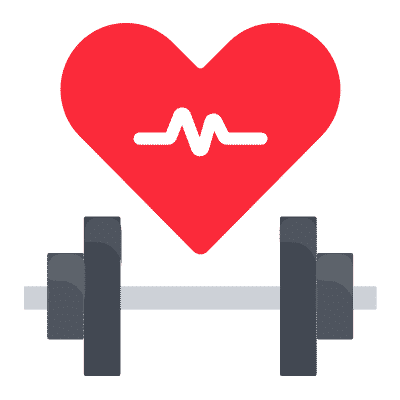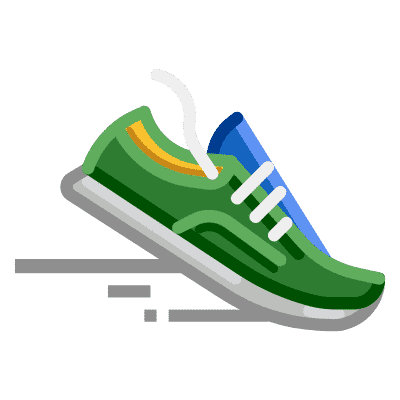Maybe coffee is your morning pick-me-up, or maybe it makes you nervous. In either case, genes may be responsible.
Coffee is one of the most popular beverages around the world, with infinite meanings for each person, on an emotional level. It can represent the beginning of a working day, a moment of personal tranquility or a meeting with friends. Coffee could be considered a cult beverage that will never be forgotten thanks to its great versatility.
One of the main benefits, and to which its popularity is mostly attributed, is the stimulating effect it produces in the body. The consumption of caffeine first thing in the morning has practically become a ritual for many people, especially for adults. However, there are people who have decided to eliminate or moderate their caffeine consumption, since caffeine can be counterproductive for rest or even produce negative side effects.
So why is it that some people can drink 6 cups of coffee a day and sleep like oak trees, and yet others cannot tolerate the slightest amount of caffeine without feeling like they are going to get off the ground?

Table of Contents
What is caffeine?
Caffeine is a chemical substance that can be found naturally in various plants, and whose consumption has stimulating effects on the central nervous system [1]. Nowadays it can also be manufactured artificially and is commonly used in medicines such as anti-flu drugs, foods and food supplements.
Where can caffeine be found?
Besides being found in the coffee plant, caffeine is an alkaloid of the xanthine group, to which also belong the theophylline of tea, the theobromine of chocolate, the guaranine of guarana, or the mateine of mate, among others.
Caffeine is most commonly found in different beverages. The amounts that these usually contain can vary greatly, but generally speaking we can say that the caffeine content in different beverages is as follows [2]:
- A 230 ml cup of coffee: 95-200 mg.
- A 350 ml can of cola drink: 35-45 mg
- One 230 ml energy drink: 70-100 mg
- A 230 ml cup of tea: 14-60 mg
Is caffeine considered a drug?
Caffeine can be considered a drug. It has positive antioxidant properties, produces tolerance and, upon cessation of its consumption, a specific withdrawal syndrome appears. Caffeine can lead to different substance use disorders. These include dependence (not recognized in the DSM IV-R), withdrawal syndrome and intoxication. Caffeine can be considered a drug, a nutrient, and a drug of abuse, depending on the type of use. [3]
What are some symptoms of caffeine sensitivity?
Some symptoms of caffeine sensitivity or overdose may include [4]
- Insomnia
- Increased heart rate
- Nervousness
- Anxiety
- Nausea
- Diarrhea

Why are some people more tolerant to caffeine?
Caffeine sensitivity is a complex trait, influenced by both genetics and environment. For example, if you have a family history of caffeine sensitivity, you are more likely to be more sensitive than another person with the same genotype who has lived in a different environment. [5]
Caffeine is metabolized by the polymorphic enzyme cytochrome P450 1A2 (CYP1A2). Individuals homozygous for the CYP1A2*1A allele are “fast” metabolizers of caffeine, while carriers of the CYP1A2*1F variant are “slow” metabolizers. [6]
Genetic testing is the latest trend in wellness and fitness. By knowing the genetic profile you have inherited, CrossDNA technology will help you make informed decisions by providing a deeper understanding of your body and its set of strengths and weaknesses.
Bibliography
[1] Fisone G, Borgkvist A, Usiello A (2004). «Caffeine as a psychomotor stimulant: mechanism of action». Cell. Mol. Life Sci. 61 (7–8): 857-72. PMID 15095008. doi:10.1007/s00018-003-3269-3.
[2] MedlinePlus [Internet]. Bethesda (MD): National Library of Medicine (US); [updated Jun 24; cited 2022 Oct 6]. Available from: https://medlineplus.gov/ency/article/002579.htm/.
[3] Barral Tafalla, Diego , & Pardo Lozano, Ricardo , & Farré Albaladejo, Magí , & Alvarez García, Yolanda (2007). Cafeína: un nutriente, un fármaco, o una droga de abuso. Adicciones, 19(3),225-238.[fecha de Consulta 6 de Octubre de 2022]. ISSN: 0214-4840. Disponible en: https://www.redalyc.org/articulo.oa?id=289122084002
[4] A.D.A.M. Medical Encyclopedia [Internet]. Jacob L. Heller, MD, MHA. Caffeine Overdose; [updated 2021 Jul 08;; cited 2022 Oct 6]; Available from: https://medlineplus.gov/ency/article/002579.html
[5] Yang A, Palmer AA, de Wit H. Genetics of caffeine consumption and responses to caffeine. Psychopharmacology (Berl). 2010 Aug;211(3):245-57. doi: 10.1007/s00213-010-1900-1. Epub 2010 Jun 9. PMID: 20532872; PMCID: PMC4242593.
[6] Cornelis MC, El-Sohemy A, Kabagambe EK, Campos H. Coffee, CYP1A2 genotype, and risk of myocardial infarction. JAMA. 2006 Mar 8;295(10):1135-41. doi: 10.1001/jama.295.10.1135. PMID: 16522833.



